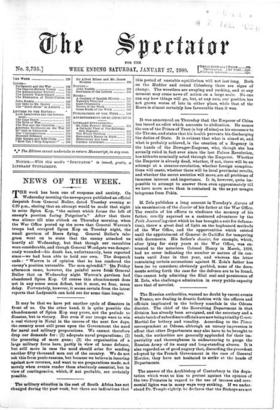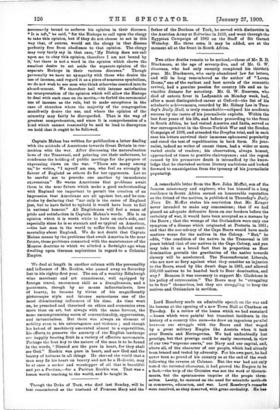The answer of the Archbishop of Canterbury to the depu-
tation which went to him to protest against the opinion of the two Primates in regard to the use of incense and cere- monial lights was in many ways very striking. If we under- stand Dr. Temple rightly, he declares that the Bishops are not necessarily bound to enforce his opinion in their dioceses.
It is left," he said, "for the Bishops to call upon the clergy to take this opinion, but if they do not choose to act in this way that, of course, would set the clergy in that diocese perfectly free from obedience to that opinion. The clergy may very fairly say in that case, My Bishop does not call upon me to obey this opinion, therefore I am not bound by it,' but there is not a word in the opinion which shows the smallest desire to set aside the separate opinion of the separate Bishops in their various dioceses." Though personally we have no sympathy with those who desire the use of incense, and regard it as a piece of sensuous symbolism, we do not wish to see men who think otherwise coerced into its abandonment. We therefore bail with intense satisfaction an interpretation of the opinion which will allow the Bishops to deal with each case on its merits,—to forbid the ceremonial use of incense as the rule, but to make exceptions in the case of churches where the majority of the congregation manifestly desire the use, and where the opinion of the minority may fairly be disregarded. That is the way of greatest comprehension, and since it is comprehension of a kind which cannot reasonably be said to lead to disruption we hold that it ought to be followed.



















































 Previous page
Previous page